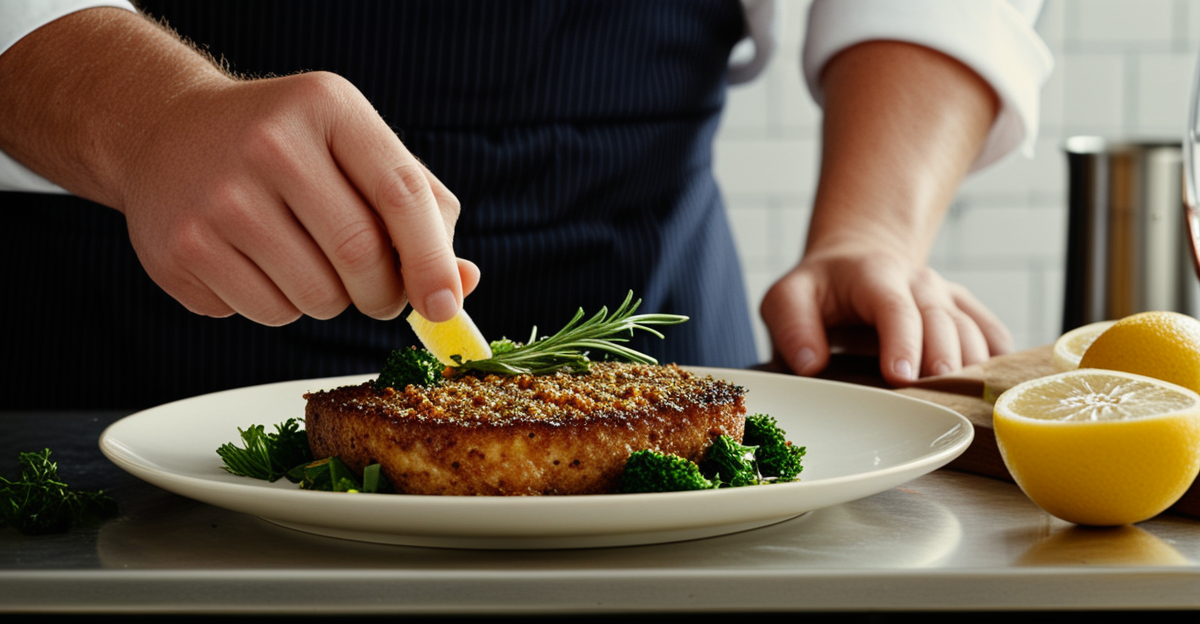Traditional Elements of British Cooking and Their Enduring Characteristics
Traditional British food is rooted deeply in British culinary history, characterized by core cooking techniques such as roasting, stewing, and baking. Classic British ingredients like potatoes, root vegetables, beef, lamb, and seasonal greens serve as staples. These ingredients have been cultivated and used over centuries, forming the backbone of British meals.
Signature dishes, including roast beef with Yorkshire pudding, shepherd’s pie, and fish and chips, exemplify the enduring popularity of traditional British food. These meals rely on straightforward preparation methods that maximize flavor while preserving ingredient authenticity.
Also to read : How can you master the technique of making a fluffy spotted dick?
Regional diversity plays a crucial role in British culinary history. Variations such as Cornish pasties in Cornwall, haggis in Scotland, and Welsh lamb highlight how geographical and historical influences shape the landscape of traditional British food. This diversity underlines the versatility and resilience of classic British ingredients.
Overall, traditional British food continues to resonate today because of its simple, hearty nature and deep cultural roots, showcasing an authentic taste of Britain’s culinary past.
Also read : How Can British Cuisine Surprise Your Taste Buds?
From Tradition to Trend: Key Dishes and Ingredients in Modern British Cuisine
Traditional British food continues to inspire modern British cuisine by offering a foundation for innovation. Many classic British ingredients, such as root vegetables, lamb, and seasonal greens, have experienced a resurgence, celebrated for their quality and versatility in contemporary recipes. Chefs now reinterpret signature dishes like shepherd’s pie and fish and chips by incorporating novel flavors or healthier cooking methods, bridging culinary history with today’s tastes.
For example, the traditional roast beef with Yorkshire pudding is often updated using locally sourced, organic beef or creative accompaniments to appeal to modern diners. This adaptation allows the dish to retain its identity while evolving.
What makes traditional British food relevant in today’s kitchens? The answer lies in how its core techniques—roasting, stewing, and baking—offer a flexible framework. These methods are adapted to new ingredients or presentation styles without losing their roots. British food trends embrace this balance between preservation and change.
This process of reinterpretation enriches the culinary scene by honoring tradition while promoting innovation. It encourages chefs and home cooks alike to explore classic British flavors in novel ways, ensuring that these dishes maintain their cultural significance in an ever-changing food landscape.
Influences on Contemporary Cooking Styles and Professional Kitchens
Traditional British cooking techniques such as roasting, stewing, and baking continue to influence today’s culinary innovation deeply. These methods provide a solid foundation for chefs who blend longstanding practices with novel ideas to create dishes that honor heritage while appealing to modern palates. For example, slow roasting—an age-old technique—remains central in high-end restaurants, but is often combined with new ingredients or plating artisticism to elevate classic flavors.
Traditional flavors, characterized by hearty meats, root vegetables, and seasonal produce, still shape menus across both casual and fine dining. This influence is evident in dishes that retain the essence of British culinary history but incorporate creative touches like infused herbs or lighter sauces. Consequently, these authentic tastes help bridge diverse dining experiences, satisfying a broad range of guests.
British culinary education plays a pivotal role in transmitting this heritage. Institutions emphasize core British cooking techniques while encouraging chefs to explore innovation. Through this blend of respect for tradition and a drive for creativity, professional kitchens maintain a dynamic food culture that remains relevant globally. This continuous cycle fosters pride in British food history while inspiring the next generation to innovate confidently.
Cultural and Global Impact of British Culinary Heritage
British food culture extends far beyond the UK, demonstrating a profound international influence that reshapes global dining. The export of British culinary ideas and dishes, such as fish and chips and afternoon tea, has introduced traditional British food to diverse markets. These iconic offerings represent a bridge between authenticity and accessibility, helping to dispel outdated stereotypes about British cuisine.
Culinary globalization has enabled British food culture to blend with multicultural elements worldwide. For example, traditional British ingredients are often incorporated into fusion dishes that combine culinary techniques from different cultures. This integration enriches both the original recipes and modern interpretations, fostering creativity and respect for tradition simultaneously.
This global exposure has shifted perceptions from simplistic views to a growing appreciation of British culinary heritage’s complexity. International chefs and food enthusiasts increasingly recognize the depth and versatility of classic British cooking, driving further innovation and cultural exchange. Such shifts highlight how British culinary heritage serves as both a foundation and inspiration in the evolving global food landscape, ensuring its continued relevance and celebration.









